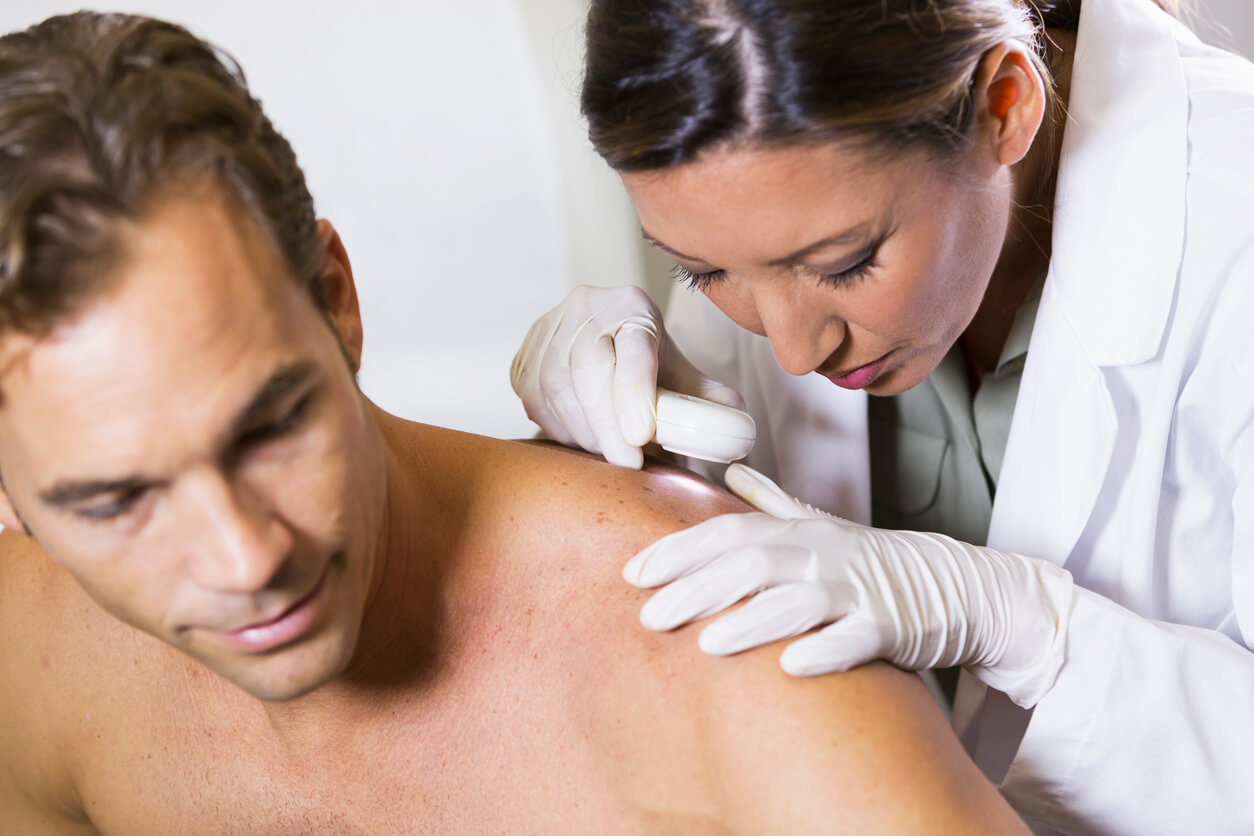Skin cancer – the most common type of cancer in the United States – is an abnormal, uncontrolled growth of skin cells. Skin cancer can take many forms, of which melanoma (the most dangerous form) kills more than 10,000 Americans each year.
The good news is that skin cancer is preventable. Looking after your skin and protecting it (especially if you belong to a group at higher risk for cancer) can significantly help reduce your risk of developing skin cancer.
Let’s discuss 4 steps you can follow to prevent skin cancer from developing and where you can go for skin cancer screening and treatment in Athens, GA.
Step #1 Limit Your Time in The Sun
While the sun is an important source of Vitamin D (a type of vitamin that is good for your bone health), it also emits harmful ultraviolet (UV) rays.
UV rays are of two basic types: UVA and UVB. UVA are rays that have a longer wavelength, can penetrate deeply into your skin, cause premature skin aging, and lead to the formation of wrinkles and age spots. In sunlight, UVA is approximately 500 times more than UVB rays. On the other hand, UVB rays have a shorter wavelength, and thus, more energy. These rays are responsible for sunburn and play the greatest role in causing skin cancer.
Therefore, you must protect your skin from the damaging effect of UV rays by limiting your time in the sun. You must avoid the sun when its rays are most intense (between 10am to 4pm). If you can’t avoid the sun, take regular breaks out of the sun.
Step #2 Wear Broad Spectrum Sunscreen
If your job or other outdoor activities require you to stay in the sun for a longer period of time, apply sunscreen with an SPF of at least 30.
SPF stands for sun protection factor, which is a measure of how much UV radiation from solar energy is required to produce sunburn on protected skin. A sunscreen of SPF 30 provides more sunburn protection than a sunscreen of SPF 10.
Use waterproof sunscreen or reapply your sunscreen every two-hour during sweating or swimming if your sunscreen isn’t waterproof.
Step #3 Avoid Tanning Beds
Sun is not the only source of harmful UV rays; tanning beds are too. Frequent use of tanning beds can also put you at risk for skin cancer. This is because tanning beds emit approximately 10 to 15 times more UV rays than the sun.
In tanning beds, they take out UVB so that you don’t get burned, but UVA still remains, which can also damage DNA and melanocytes, thus increasing the risk for melanoma.
Step #4 See a Dermatologist Regularly
Dermatologists are medical doctors who are specialized in diagnosing, preventing, and treating a full range of skin, nail, and hair problems. They also receive special training in the diagnosis and treatment of skin cancer.
So, you must see a dermatologist regularly, especially if you’re at higher risk for developing skin cancer. The dermatologist will perform a physical exam to detect and treat any signs of skin cancer. They will also guide you on how you can perform a self-exam.
Skin Cancer Specialist in Athens, GA
If you are someone who spends most of your time in the sun and is worried about skin cancer or belongs to a group at higher risk for skin cancer, visit our skin cancer specialists at Georgia Skin Cancer & Aesthetic Dermatology for a complete evaluation. Our board-certified skin cancer specialists will detect your skin cancer and give you the necessary treatment as early as possible. They will also guide you on how to prevent skin cancer and how to do a self-exam.
Call us today at (706) 543-5858 to make an appointment or learn more about our services, or you can use our convenient online Book Appointment form.
